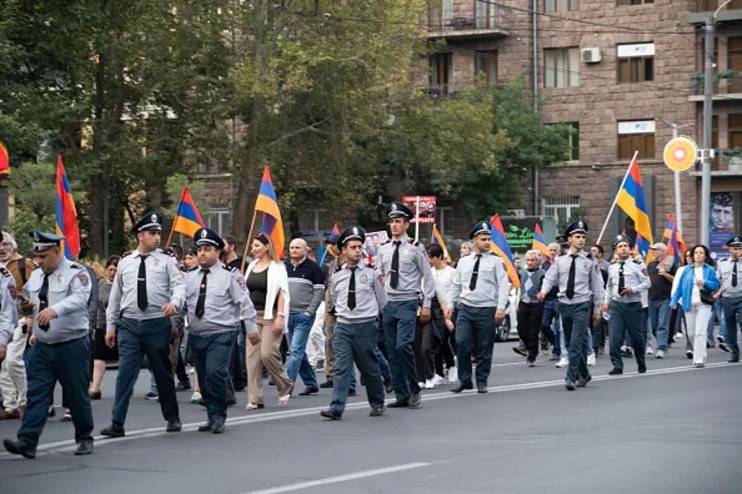We cannot allow Azerbaijan’s vile human rights abuses to be redeemed by hosting Cop29

Twelve months on from Azerbaijan’s illegal arrest of 23 Armenian leaders, the world needs to take a cold hard look at its human rights abuses, writes Paul Polman
This week marks a grim anniversary for anyone who believes in free speech and the rule of law.
A year ago on Friday (27 September) Ruben Vardanyan, the successful businessman and philanthropist, was captured by the Azerbaijani army along with 22 other Armenians, as he was trying to help his fellow citizens flee during the Azerbaijani invasion of Nagorno-Karabakh. But this was not just a military manoeuvre – it was a pretext to carry out the ethnic cleansing of 120,000 Armenians from a region that President Aliyev has long had in his sights.
Since then, Ruben and the other prisoners have been illegally held hostage by the Azerbaijani authorities in a high security jail in Baku. They have been refused a proper trial or access to independent legal counsel, denied proper food or medical treatment and dreadfully mistreated. Ruben’s treatment is also subject to an ongoing appeal to the UN Special Rapporteur on Torture.
Over 100,000 Armenians were forced to flee Nagorno-Karabakh last year in the face of naked Azerbaijani aggression and are now refugees with no certainty about their future.
Instead of responding to the prisoners’ pressing humanitarian needs, President Aliyev’s authoritarian regime has resorted to a campaign of disinformation and dissimulation, including labelling the prisoners as terrorists and terrorism financiers, and going as far as likening them to war criminals.
What else could you expect from a country that is scored just seven out of 100 on Freedom House’s index of transparency and democracy, and in which Human Rights Watch has identified persistent ill-treatment in police custody and places of detention?
International condemnation of Aliyev is increasing. In the US, senators Ben Cardin and Ed Markey have spoken out about the illegal detainment of the prisoners, and presidential candidate Kamala Harris wrote this week in clear and unequivocal support for the rights of all who have been subject to ethnic cleansing from Nagorno-Karabakh to return.
That support is also seen in the UK, with parliamentarians putting the ordeal of the prisoners on the agenda of both houses, and we hope to see the foreign secretary return to the British government’s long-held stance in support of Armenia’s struggle.
‘Reputation washing’
In its latest round of reputation washing (following this month’s Formula 1 Grand Prix held in Baku), Azerbaijan is due to host the UN’s Cop29 Summit on climate change. The country is one of the world’s largest oil and gas producers and plans to increase output by 50 per cent by the end of the decade – President Aliyev himself has claimed that the country’s hydrocarbons are ‘a gift from God’.
Azerbaijan is hosting Cop29, yet President Aliyev himself has claimed that the country’s hydrocarbons are ‘a gift from God’.
The president has also claimed that this will be ‘the Cop of peace’, but it is impossible to see this as anything other than a cynical PR stunt when his regime will still be illegally detaining political prisoners within walking distance of the conference, with brazen disregard for his country’s obligations under international law.
The regime continues to trample on the basic human rights and freedoms that are the lifeblood of stable and peaceful societies. Torture, police brutality, suppressing dissent, limiting media freedom – all are weapons of hate and division, not tools of peace.
What can the world do?
Even at this late stage it is not too late for the UN to call on Azerbaijan to demonstrate real commitment to decarbonising its economy and upholding human rights. Baku is not immune to international pressure, and leaders from politics and business should be urging reform.
The regime is attempting to exploit its Cop presidency to airbrush its international image. Instead of letting this happen, we should use this moment to shine a light on abuse and hypocrisy, for the sake of the Armenian detainees and all those whose liberties are being crushed by the government in Baku. One year on, and their plight is not forgotten.
Paul Polman is former CEO of Unilever and former vice-chair of the UN Global Compact